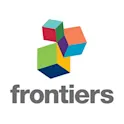Frontiers Communications
Editor
Editor

Frontiers news
16 May 2024
Dr Mariana Fuentes is an associate professor at Florida State University and the founder and principal investigator for the Marine Turtle Research, Ecology and Conservation Group. She also serves as the specialty chief editor of the Conservation section of Frontiers in Amphibian and Reptile Science. She is a renowned marine conservation biologist with specialized expertise in conservation planning and natural resource management. Her extensive understanding of anthropogenic and climate change impacts on marine megafauna, particularly marine turtles, plays a vital role in her work.

Frontiers news
10 May 2024
The Villars Institute Summit 2024 was a pivotal gathering of minds, set against the picturesque backdrop of Villars-sur-Ollon, Switzerland. Over three days, more than 280 experts, entrepreneurs, investors, and philanthropists met to address the pressing challenges of our time: the climate and biodiversity crises. Through plenary discussions, workshops, and roundtables, participants focused on how interdisciplinary cooperation can accelerate systemic change and address these crises in a holistic manner.

Frontiers news
29 Apr 2024
Frontiers’ volunteers have always been at the forefront of community and societal responses. Hannah Devine shares her experience running the 2024 London Marathon in support of Mind.

Frontiers news
18 Apr 2024
Climate change poses an existential threat to society. Rising temperatures and shifting weather patterns are fueling environmental degradation, natural disasters, weather extremes, food and water insecurity, economic disruption, conflict, and terrorism. The World Economic Forum’s Global Risks Report 2024 identifies climate-related changes as some of the most severe risks over the next decade. And nearly two-thirds of the 1.2 million participants in the United Nations Development Programme’s 2021 People Climate Vote said that climate change is a ‘global emergency.’

Frontiers news
17 Apr 2024
The Frontiers Research Foundation is an official sponsor of INGSA 2024: The Transformation Imperative, the fifth international conference of the International Network for Governmental Science Advice (INGSA). Governed by the overarching theme of diversity and inclusion within the iterative and dynamic process of science advice, the conference will focus on transformation, expanded evidence, and inclusion. The event will be held 30 April – 3 May 2024 in Kigali, Rwanda.

Frontiers news
10 Apr 2024
Dr Kaveri Mayra is a global health researcher with qualifications in midwifery, nursing, and public health. Her work focuses on understanding determinants of positive and negative perinatal care experiences. At the University of British Columbia, she leads the Continuum for Respectful Care (CORE) initiative and plays a key role in bringing out the qualitative narratives from the RESPCCT initiative through innovative arts-based research methods. In 2020, Kaveri was recognized as one of the 100 outstanding global midwife and nurse leaders by Women in Global Health (WGH) and the World Health Organization (WHO). Kaveri and I discuss her experience as a young nurse-midwife, the problems facing obstetric and maternity care, as well as some unexpected potential solutions. Currently, Kaveri is leading a Research Topic titled: Prioritizing Pleasure in Reproductive and Maternal Health to Address Obstetric Violence in Frontiers in Global Women’s Health.

Featured news
28 Mar 2024
We take a moment to reflect on the information, resources, and actions taken over the past several months towards promoting longer, more prosperous lives on a healthier planet.

Frontiers news
27 Mar 2024
Frontiers’ volunteers have always been at the forefront of community and societal responses. Mary Ayagwu shares her experience volunteering for a global event in support of women and girls to mark this year's International Women's Day.

Featured news
21 Mar 2024
Open access publisher Frontiers announces that Francesca Tettamanzi will lead the company’s commitment to the United Nations SDG Publishers Compact. Francesca will play a pivotal role in advancing Frontiers’ efforts in sustainability, environmental responsibility, and societal impact.

Frontiers news
08 Mar 2024
Dr Olusola (Shola) Oluwayemisi Ololade currently holds the position of associate professor and director for the Centre for Environmental Management at the University of the Free State in Bloemfontein, South Africa. She is a member of the International Society for Development and Sustainability and the Organisation of Women in Science in Developing Countries (OWSD). She acts as advisor for young scholars working in the realm of Sustainable Development. Her research focuses on corporate environmental management and sustainability; water, pollution, and rehabilitation; biodiversity and conservation management; and tools and approaches to sustainable water resource management. This month, we are celebrating International Women’s Day and World Water Day. I am tremendously lucky to have been able to speak to Dr Ololade. She led me through her journey in water resource management in the African context, calling attention to the need for increased educational measures on water. We explore topics like inequalities in access to water, water reuse, groundwater management, and adaptation to water extremes.

Research Topics
06 Mar 2024
This International Women's Day, we spoke with Topic Editor Iccha Basnyat, who leads Centering Women, Health, and Health Equity in Health Communication, a Research Topic that explores women-centered understandings of health and health communication.

Frontiers news
05 Mar 2024
The proliferation of ‘paper mills’ poses a real threat to research publishing integrity, as these practices undermine the credibility of scientific research, leading to an erosion of trust among researchers and the wider public. Frontiers joins UNITED2ACT to address the issue of paper mills and combat fraudulent practices in academic publishing.

Frontiers news
05 Mar 2024
Frontiers, a leading research publisher and open science platform, releases a statement in public support of the wording in federal legislation that would promote the widespread, free, and equitable sharing of the latest scientific knowledge.

Frontiers news
16 Feb 2024
Thanks to the crowdsourcing dynamic of open science, we promptly acted upon the community feedback on the AI-generated figures in the article "Cellular functions of spermatogonial stem cells in relation to JAK/STAT signaling pathway", published on 13 February 2024. Frontiers has now retracted and removed the article from the databases to protect the integrity of the scientific record.

Frontiers news
12 Feb 2024
Dr Gabby Ahmadia is vice president of Area-Based Conservation for the Oceans program at WWF-US, where she oversees science teams working together in priority regions around the globe, from the Pacific to Indian Ocean. We talk about the importance of strong international collaboration and addressing power dynamics to overcome the pervasive practice of parachute science, while also tackling issues of being a woman in science.
Get the latest research updates, subscribe to our newsletter